Pennington, NJ – The Electrochemical Society (ECS) has named 10 members to the 2021 class of ECS Fellows. The designation “Fellow of The Electrochemical Society” was established in 1989 for advanced individual technological contributions to the fields of electrochemistry and solid state science and technology, and for service to the Society. These members are recognized for scientific achievements, leadership, and active participation in the affairs of ECS. Each year, up to 15 renowned scientists and engineers are chosen by their peers for this honor.
The 2021 ECS Fellows are: Shekhar Bhansali; Anja Boisen; Stanko R. Brankovic; Ernesto Julio Calvo; Douglas C. Hansen; Jihyun Kim; Jagjit Nanda; M. Rosa Palacin; Slava V. Rotkin; and Xiao-Dong Zhou.
2021 ECS Fellows (listed alphabetically)
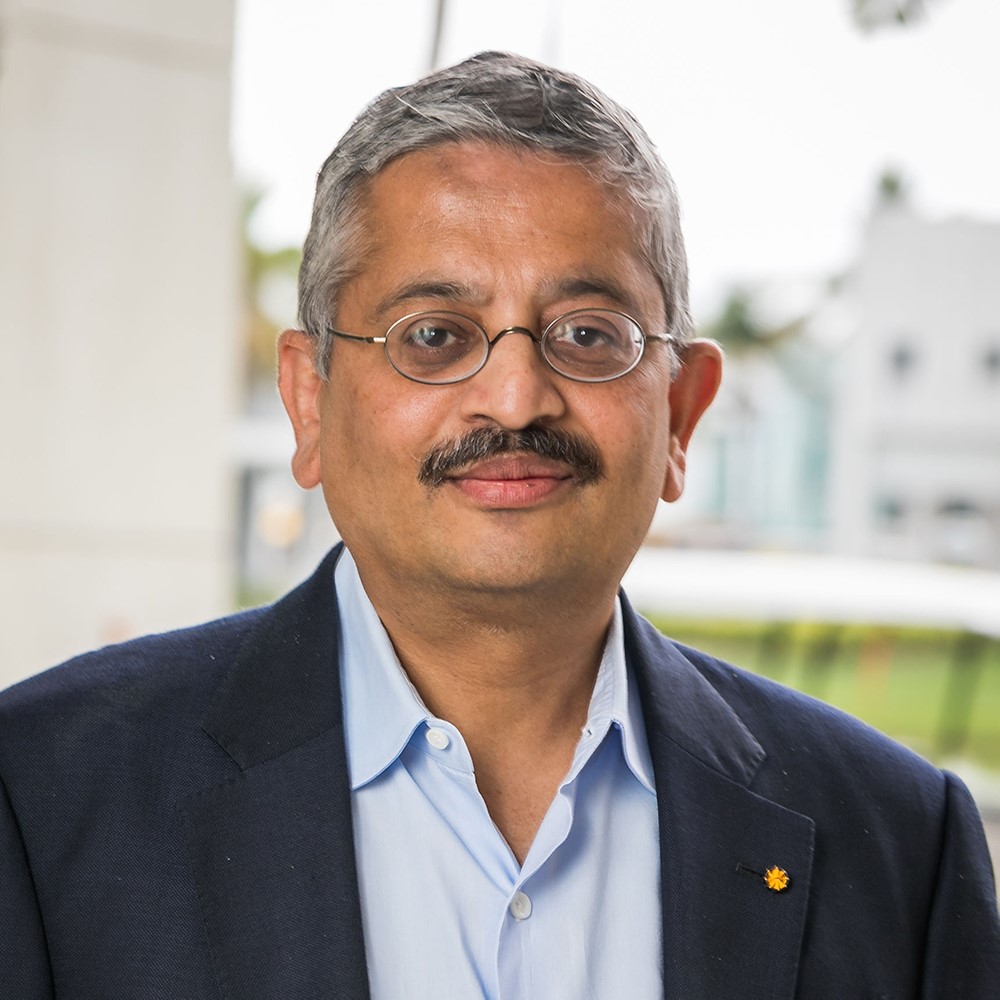 Shekhar Bhansali is Distinguished University Professor at Florida International University (FIU), where he also holds the CALA-Technologies Lucent Distinguished Chair. He has served as Division Director (Electrical Communications and Cyber Systems) at the National Science Foundation since fall 2020. Bhansali’s expertise is in electrochemical biosensors, wearable sensors, microfluidic sensors and systems, nanostructured catalysts, and microsystems.
Shekhar Bhansali is Distinguished University Professor at Florida International University (FIU), where he also holds the CALA-Technologies Lucent Distinguished Chair. He has served as Division Director (Electrical Communications and Cyber Systems) at the National Science Foundation since fall 2020. Bhansali’s expertise is in electrochemical biosensors, wearable sensors, microfluidic sensors and systems, nanostructured catalysts, and microsystems.
Bhansali received his PhD in Electrical Engineering at the Royal Melbourne Institute of Technology, then completed a postdoctoral fellowship at the National Research Laboratory of Metrology (Japan). Bhansali served as Chair of the Electrical and Computer Engineering Department at FIU from 2011 to 2020, and was the Interim Director of the School of Electrical, Computer and Enterprise Engineering from 2019 to 2020. Previously, he spent 11 years as a professor at the University of South Florida. He holds 40 patents and has published over 300 papers. Bhansali has mentored and supported over 200 minority PhD students and 200 undergrads as they pursued their doctoral degrees in all areas of STEM. His mentoring has been recognized through multiple awards, including the Alfred P. Sloan Foundation Mentor of the Year Award and William R Jones Outstanding Mentor Award. Bhansali is a Fellow of the American Association for the Advancement of Science; American Institute of Medical and Biological Engineering; Institute of Physics; and National Academy of Inventors.
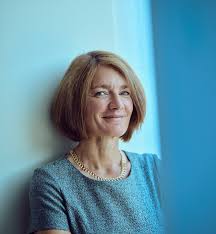 Anja Boisen is Head of Section and Professor in the Department of Health Technology at the Danmarks Tekniske Universitet (DTU). She heads IDUN, a Danish National Research Foundation and the Villum Foundation Center of Excellence that conducts research in micro and nano technology. Her research group focuses on the development and application of micro and nano mechanical sensors and microfabricated systems for oral drug delivery. Boisen co-founded the companies Cantion, Silmeco BluSense Diagnostics, and LightNovo.
Anja Boisen is Head of Section and Professor in the Department of Health Technology at the Danmarks Tekniske Universitet (DTU). She heads IDUN, a Danish National Research Foundation and the Villum Foundation Center of Excellence that conducts research in micro and nano technology. Her research group focuses on the development and application of micro and nano mechanical sensors and microfabricated systems for oral drug delivery. Boisen co-founded the companies Cantion, Silmeco BluSense Diagnostics, and LightNovo.
Boisen completed an MS in Physics at Roskilde University and a PhD at DTU in 1997. She completed a research period at IBM Almaden and a postdoc at DTU. She joined the DTU faculty as Associate Professor in 1999 and became a full professor in 2005. She is a board member of the Leo Foundation, Villum Foundation, Danish Academy of Technical Sciences, and Royal Danish Academy of Sciences.
Boisen has an h-index of 62 with over 14,000 citations. Her work has garnered significant recognition. In 2020, she was awarded the Order of Dannebrog by Her Majesty the Queen of Denmark. Boisen received the 2013 Danish Council for Independent Research Sapere Aude Top Researcher Award; 2012 Danish Ministry of Research, Innovation and Higher Education EliteForsk Award; and 2008 Villum Kann Rasmussen Award (the largest Danish research prize).
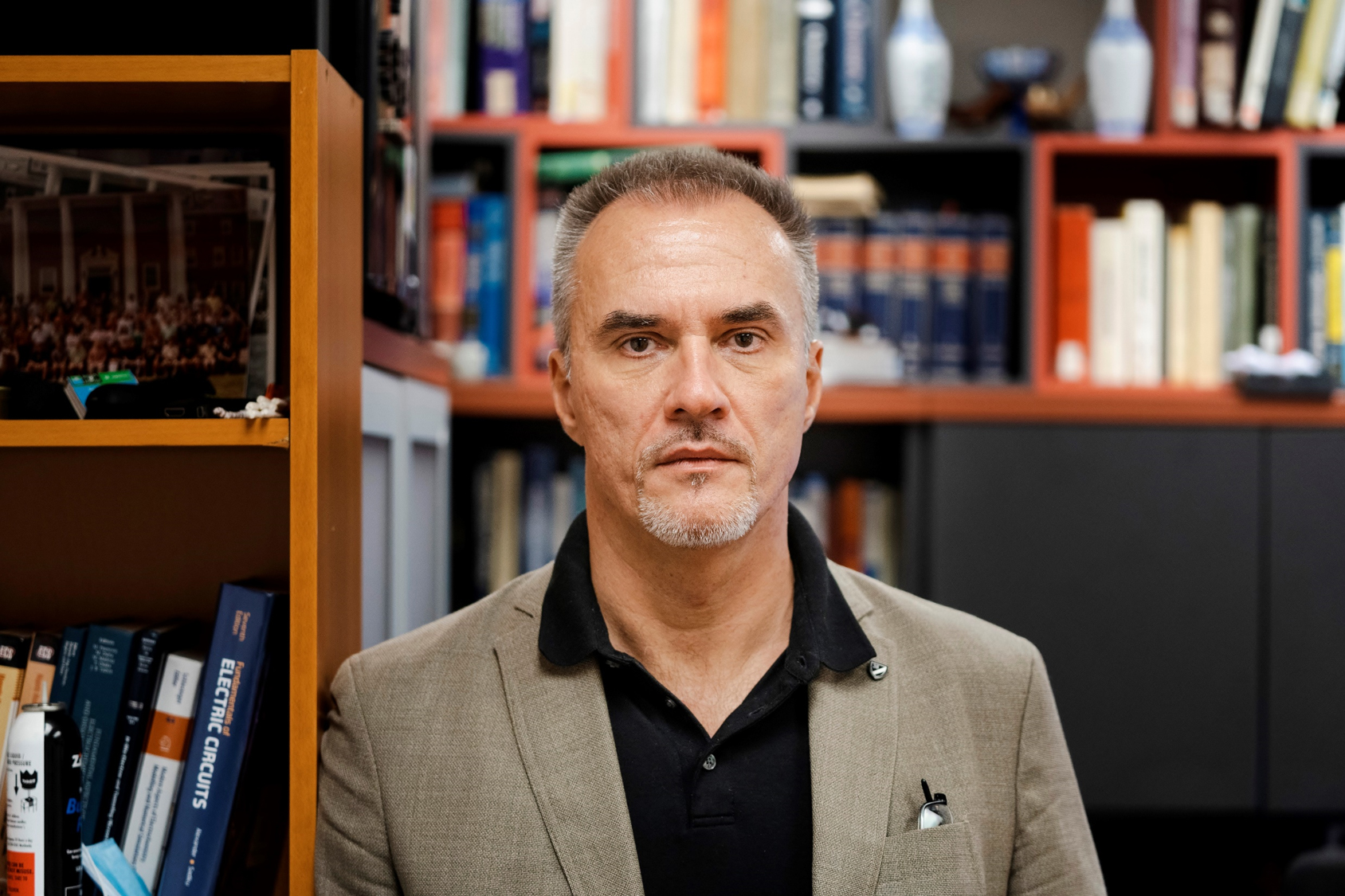 Stanko R. Brankovic is a Professor in the Departments of Electrical and Computer Engineering and Chemical and Biomolecular Engineering at the University of Houston (U of H). His group explores physical and chemical processes at the electrochemical interface and their use to produce materials and nanostructures with novel functionality and application. These research activities into sensors, magnetic materials, thin films, electrocatalysis, and nanofabrication are supported by federal (NSF, DOE, DOD), private, and state grants.
Stanko R. Brankovic is a Professor in the Departments of Electrical and Computer Engineering and Chemical and Biomolecular Engineering at the University of Houston (U of H). His group explores physical and chemical processes at the electrochemical interface and their use to produce materials and nanostructures with novel functionality and application. These research activities into sensors, magnetic materials, thin films, electrocatalysis, and nanofabrication are supported by federal (NSF, DOE, DOD), private, and state grants.
Brankovic received his BE in Chemical and Biochemical Engineering in 1994 from the University of Belgrade and PhD in Science and Engineering of Materials in 1999 from Arizona State University. Before joining U of H in 2005, he completed a postdoctoral fellowship at the Brookhaven National Laboratory (1999–2001) and worked as a research staff member at the Seagate Research Center (2001–2005).
Brankovic served as Chair of the ECS Electrodeposition Division (2017–2019) and Chair of the Material Science Division of the International Society of Electrochemistry (2015–2017). His work has been acknowledged by the 2017 ECS Electrodeposition Research Award; 2017 Best Fundamental Paper Award of the American Institute of Chemical Engineering; 2010 University of Houston Research and Excellence Award; and 2010 National Science Foundation Faculty Early Career Development Award.
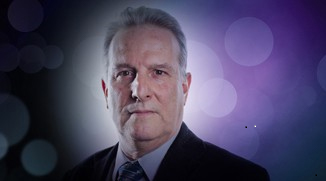 Ernesto Julio Calvo is Professor of Physical Chemistry at the Universidad de Buenos Aires (UBA) and a Permanent Research Staff member at the Consejo Nacional de Investigaciones Científicas y Técnicas. His research has focused on wiring redox enzymes to electrodes, layer-by-layer redox polyelectrolytes, oxygen eduction on oxides, enzyme functionalized surfaces and in Li-air cathodes. Calvo received first prize in the 2017 Bright Minds Challenge for inventing a lithium extraction method powered by solar energy that is quicker and cleaner than existing technology.
Ernesto Julio Calvo is Professor of Physical Chemistry at the Universidad de Buenos Aires (UBA) and a Permanent Research Staff member at the Consejo Nacional de Investigaciones Científicas y Técnicas. His research has focused on wiring redox enzymes to electrodes, layer-by-layer redox polyelectrolytes, oxygen eduction on oxides, enzyme functionalized surfaces and in Li-air cathodes. Calvo received first prize in the 2017 Bright Minds Challenge for inventing a lithium extraction method powered by solar energy that is quicker and cleaner than existing technology.
Calvo completed an MS in Chemistry at UBA (1975) and PhD in Chemistry at the Universidad Nacional de La Plata (1979) under Prof. David J. Schiffrin. As a Postdoctoral Research Fellow in Chemistry and Materials Science at Imperial College London from 1979 to 1982, he worked with Profs. Wyndham John Albery and Brian C. H. Steele, and then with Prof. Ernest B. Yeager as a Senior Research Associate at Case Western Reserve University. He was Director of INQUIMAE (El Instituto de Química Física de los Materiales, Medio Ambiente y Energía) at UBA from 2008 to 2018. He served as the Vice President of the International Society of Electrochemistry from 2009 to 2011. Calvo has an h-index of 52 and has published some 180 research papers in peer-reviewed international journals. He has supervised 20 chemistry PhD students.
Calvo is an ECS Emeritus Member; Fellow of the Royal Society of Chemistry and International Union of Pure and Applied Chemistry; and member of the Latin America Academy of Science. Among the accolades garnered by his research are the 2020 Argentine National Academy of Exact, Physical and Natural Sciences Prize; 2017 Personality of the Year in Science and Technology; 2017 Schumacher Prize in Physical Chemistry of the Argentine Chemical Society; 2005 National Award in Science from the Argentine Ministry of Education and Science; 2003 Konex Award in Science and Technology; and 2000 John Simon Guggenheim Award.
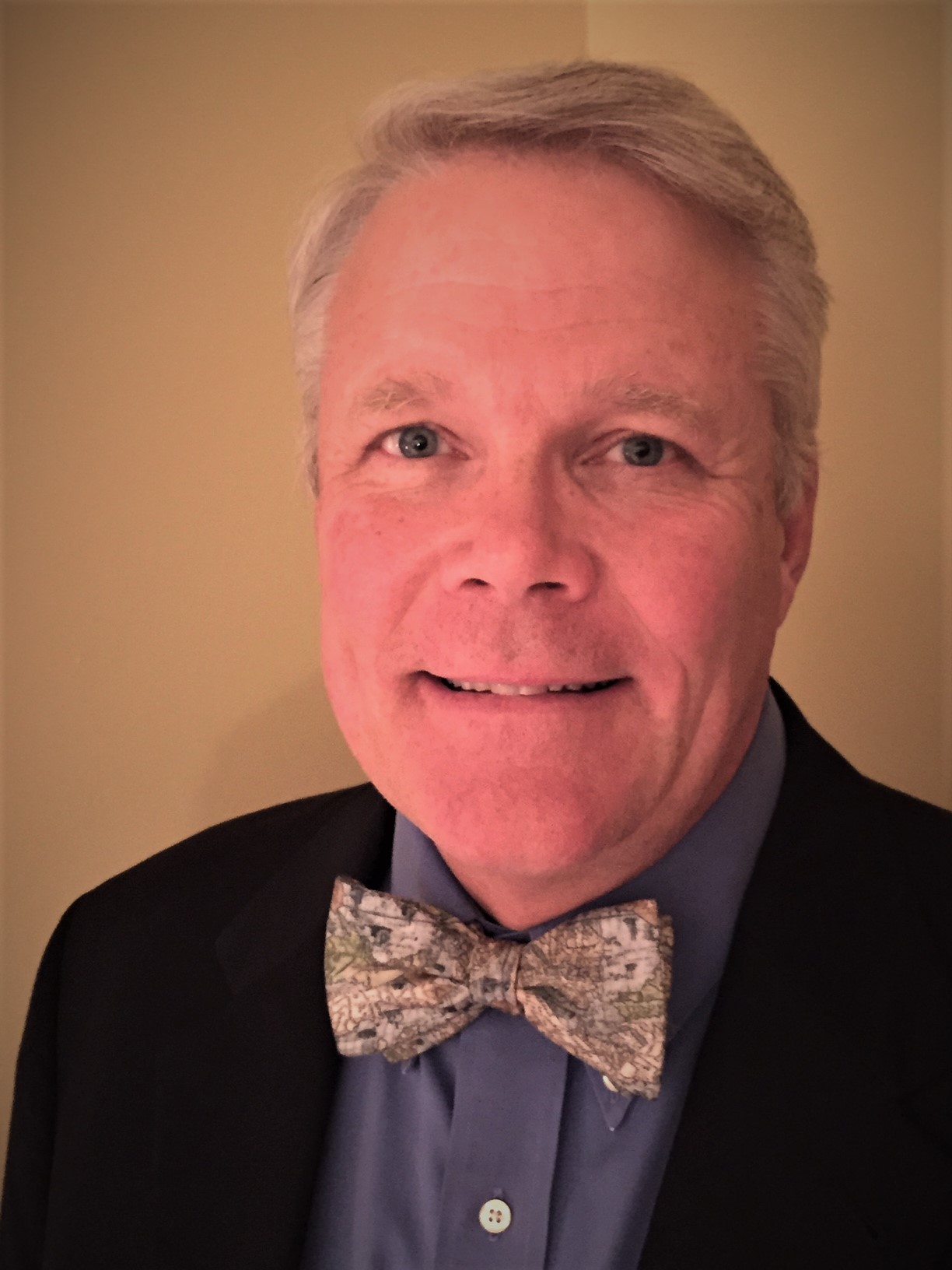 Douglas C. Hansen is a Distinguished Research Scientist in the Nonstructural Materials Division at the University of Dayton Research Institute (UDRI), and he holds a Joint Faculty Appointment in the Graduate Chemical and Materials Engineering Program, University of Dayton. His research interests include biological interactions at metal surfaces—metal and alloy corrosion in the human body, biomaterials, and the interaction of marine biopolymers as corrosion inhibitors with metals and alloys; scanning probe techniques to explore corrosion, biochemical, and electrochemical processes such as the scanning Kelvin probe; and analytical techniques such as scanning electron microscopy (SEM), Fourier transform infrared spectroscopy (FTIR), and electrokinetic (zeta) potential measurements.
Douglas C. Hansen is a Distinguished Research Scientist in the Nonstructural Materials Division at the University of Dayton Research Institute (UDRI), and he holds a Joint Faculty Appointment in the Graduate Chemical and Materials Engineering Program, University of Dayton. His research interests include biological interactions at metal surfaces—metal and alloy corrosion in the human body, biomaterials, and the interaction of marine biopolymers as corrosion inhibitors with metals and alloys; scanning probe techniques to explore corrosion, biochemical, and electrochemical processes such as the scanning Kelvin probe; and analytical techniques such as scanning electron microscopy (SEM), Fourier transform infrared spectroscopy (FTIR), and electrokinetic (zeta) potential measurements.
Hansen received his PhD from the University of Delaware in 1993 and then worked under Ed McCafferty at the US Naval Research Laboratory (NRL) as a National Research Council Postdoctoral Research Associate, investigating environmentally friendly corrosion inhibitors. In 1995, he joined NRL as a Research Chemist, and then spent seven years with Princeton Applied Research as their Senior Scientist before moving to Dayton.
Hansen has served ECS as Chair of the Corrosion Division; Chair of the Short Course Subcommittee, Sponsorship Committee, and Uhlig Award committee; member of the Honors and Awards, Nominating, New Technology, Education, Finance, and Development Committees; and member of the Interdisciplinary Science and Technology Subcommittee. Hansen has been the Lead or Co-Organizer of 26 ECS symposia over the years. The author of more than 110 publications, Hansen was selected Fellow of NACE International in 2019.
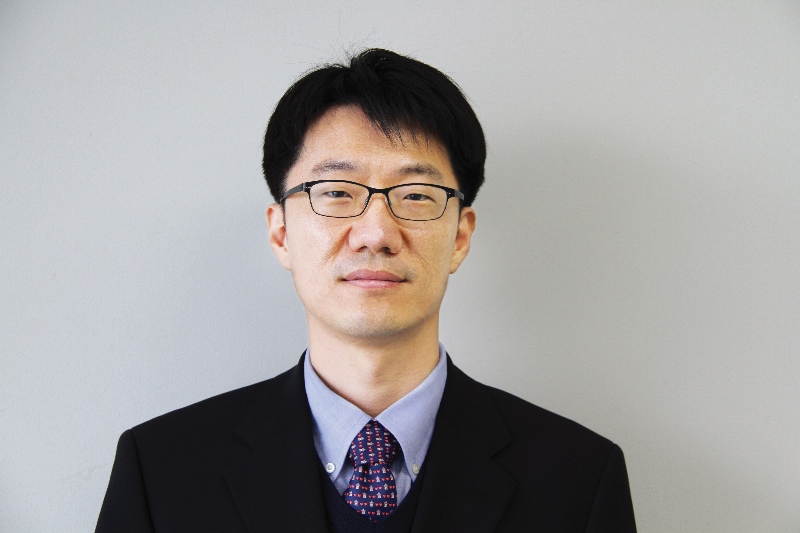 Jihyun Kim is a professor in the Department of Chemical and Biological Engineering and Director of the Inter-University Research Institute for Energy Technology at Korea University (KU). He has made numerous pioneering contributions in the development of processing techniques for wide and ultra-wide bandgap semiconductor material systems that are crucial for the demonstration of state-of-the-art performance of high-power compound semiconductor electronic devices such as MOSFETs, rectifiers, and HEMTs. His interests also include electronic/optical properties and device fabrications of 2D semiconductor materials. His group developed novel 2D devices (double heterojunction bipolar transistors, memristor, and photodetector and chemical sensors). He is also interested in radiation damage and radiation-hard devices in semiconductor materials, improving their reliability in harsh environments.
Jihyun Kim is a professor in the Department of Chemical and Biological Engineering and Director of the Inter-University Research Institute for Energy Technology at Korea University (KU). He has made numerous pioneering contributions in the development of processing techniques for wide and ultra-wide bandgap semiconductor material systems that are crucial for the demonstration of state-of-the-art performance of high-power compound semiconductor electronic devices such as MOSFETs, rectifiers, and HEMTs. His interests also include electronic/optical properties and device fabrications of 2D semiconductor materials. His group developed novel 2D devices (double heterojunction bipolar transistors, memristor, and photodetector and chemical sensors). He is also interested in radiation damage and radiation-hard devices in semiconductor materials, improving their reliability in harsh environments.
Kim received his BS from Seoul National University, and PhD in Chemical Engineering from the University of Florida, where he studied GaN-based electronic devices. During his graduate study, he completed an internship in Semiconductor Physics Research at Bell Laboratories. His postdoctoral research at the Electronics Science and Technology Division of the US Naval Research Laboratory was on the optical and thermal analysis of wide-bandgap semiconductors. In 2006, he became a KU faculty member, where he has been honored with the Crimson Professorship. Kim is the author of more than 250 peer-reviewed articles (with over 10,000 citations) and seven book chapters. His service to ECS includes being Guest Editor of two focus issues of the Journal of Solid State Science and Technology; organizing five symposia; and editing six ECS conference volumes.
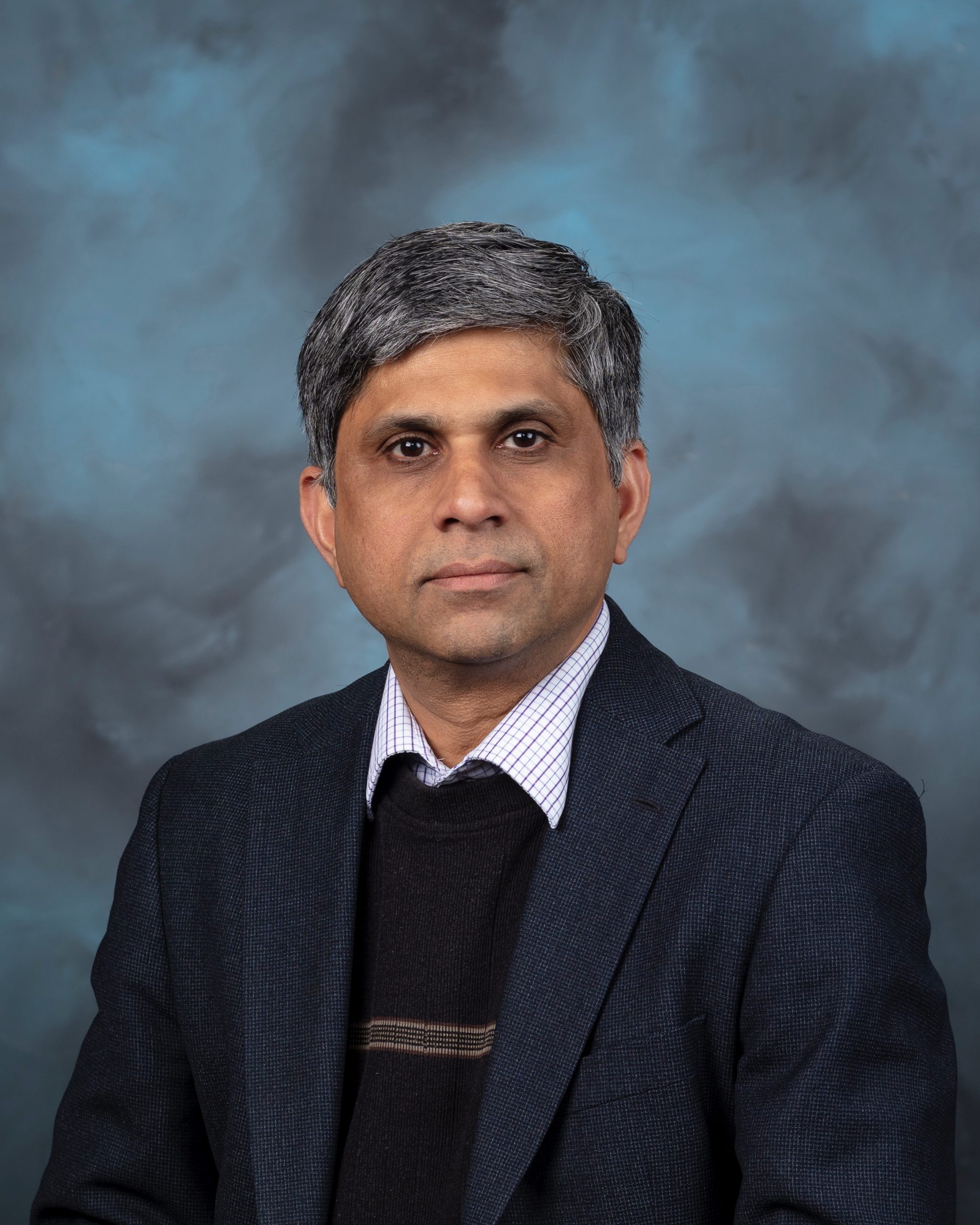 Jagjit Nanda is a Distinguished Staff Scientist and Group Leader of the Energy Storage and Conversion Group at Oak Ridge National Laboratory’s Chemical Sciences Division. He is also on the faculty of the Bredesen Center for Interdisciplinary Research and Graduate Education, and joint professor in the Chemical and Biomolecular Engineering Department at the University of Tennessee. Prior to joining Oak Ridge in 2009, Nanda worked as a technical lead at the Research and Advanced Engineering Center, Ford Motor Company, leading R&D projects in lithium-ion battery materials and in nanomaterials for energy application.
Jagjit Nanda is a Distinguished Staff Scientist and Group Leader of the Energy Storage and Conversion Group at Oak Ridge National Laboratory’s Chemical Sciences Division. He is also on the faculty of the Bredesen Center for Interdisciplinary Research and Graduate Education, and joint professor in the Chemical and Biomolecular Engineering Department at the University of Tennessee. Prior to joining Oak Ridge in 2009, Nanda worked as a technical lead at the Research and Advanced Engineering Center, Ford Motor Company, leading R&D projects in lithium-ion battery materials and in nanomaterials for energy application.
Nanda received his PhD in Solid State Chemistry & Materials Science from the Indian Institute of Science in 2000, followed by a post-doctoral fellowship at Stanford University (2000–2002) and a Research Associate position at Los Alamos National Laboratory (2002–2005). He has published more than 150 journal and technical publications on the topic of energy storage and conversion, and holds 10 US and international patents in the area of energy storage R&D. Nanda is an active member of several professional scientific societies.
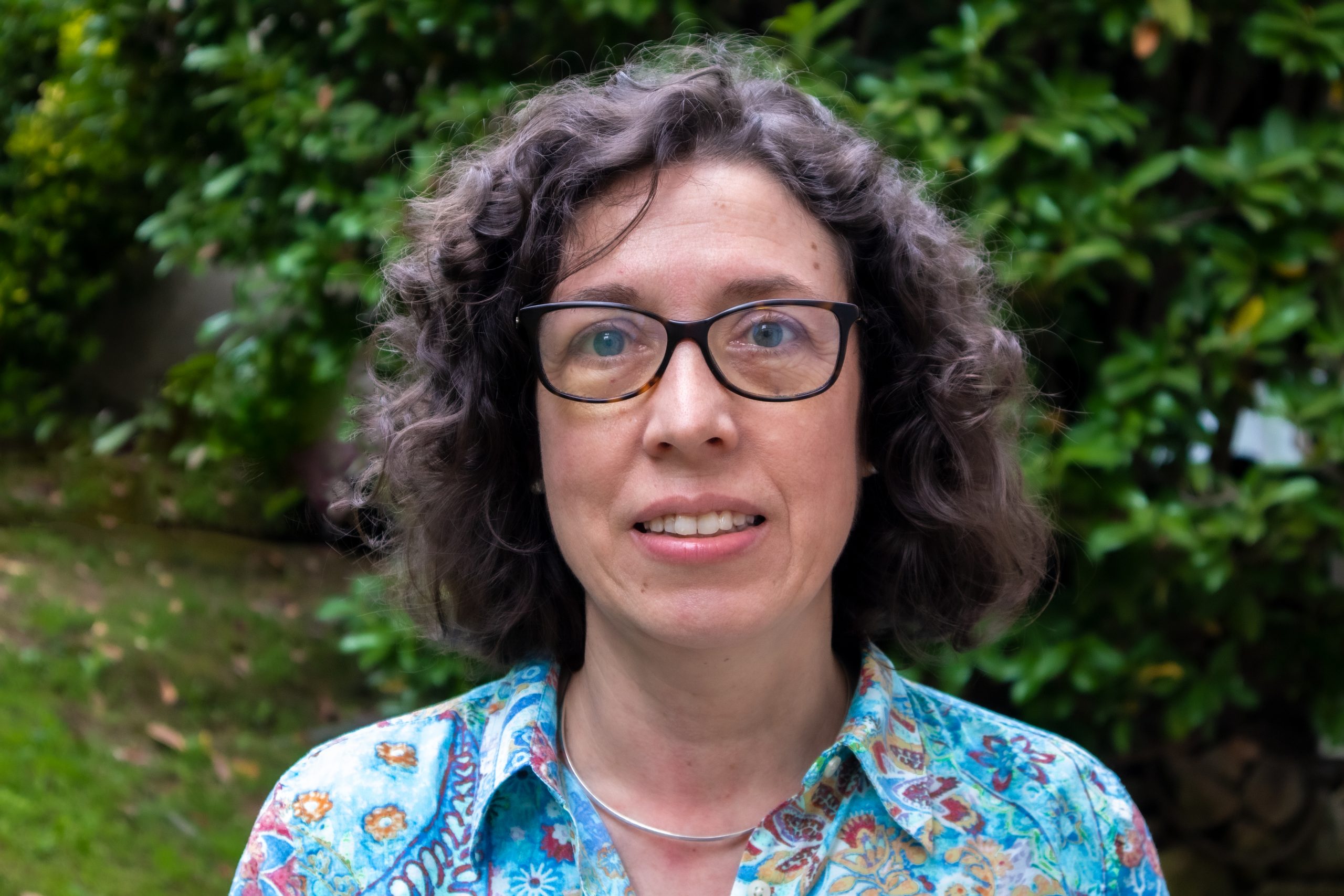 M. Rosa Palacin is a Research Professor at the Institut de Ciència de Materials de Barcelona (ICMAB-CSIC). Her career has focused on solid state chemistry and electrochemistry applied to batteries, and has covered a wide diversity of technologies from commercial (e.g., Ni or Li-ion) or pre-commercial (Na-ion) concepts to new emerging chemistries (Mg, Ca). She has always placed emphasis on developing fertile cooperation scenarios between basic-oriented research and industry, and often performed research under direct industrial contracts.
M. Rosa Palacin is a Research Professor at the Institut de Ciència de Materials de Barcelona (ICMAB-CSIC). Her career has focused on solid state chemistry and electrochemistry applied to batteries, and has covered a wide diversity of technologies from commercial (e.g., Ni or Li-ion) or pre-commercial (Na-ion) concepts to new emerging chemistries (Mg, Ca). She has always placed emphasis on developing fertile cooperation scenarios between basic-oriented research and industry, and often performed research under direct industrial contracts.
Prof. Palacin received her BS (1991) and PhD (1995) in Chemistry from the Universitat Autònoma de Barcelona. Following a postdoc at Laboratoire de Réactivité et Chimie des Solides at the Université de Picardie Jules Verne (LRCS-UPJV), she started research on inorganic battery materials at ICMAB-CSIC in 1998. Palacin has received significant recognition, delivering numerous keynote/invited talks at international conferences/workshops, and being invited to write several reviews in wider scope and specialized journals. She has published over 140 articles in peer-reviewed journals, and is the co-inventor of nine patents (six of which are licensed and jointly owned with industry).
She has served as an Associate Editor for Chemistry of Materials since 2016. Palacin was the scientific co-director of ALISTORE ERI from 2010 to 2017. A member of the International Battery Association Board since 2012, she was also elected to the Governing Board of Batteries Europe ETIP (Future and Emerging Technologies) in 2019.
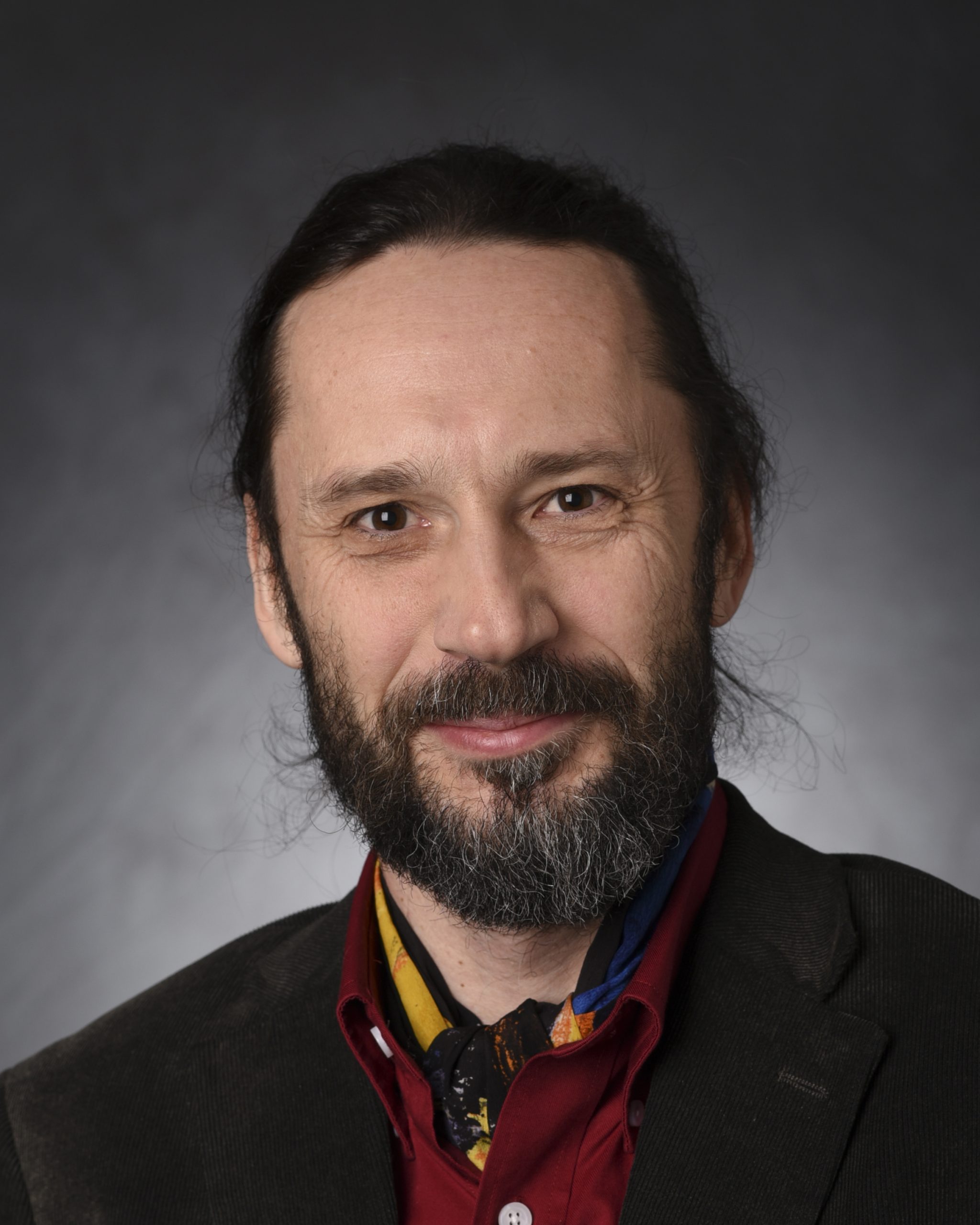 Slava V. Rotkin is the Frontier Professor of Engineering Science & Mechanics at Pennsylvania State University (Penn State). He has made lasting contributions to the theory of fullerenes, nanocarbon and two-dimensional (2D) materials and devices, in particular, by introducing novel concepts of quantum capacitance, van-der-Waals/quantum forces in NEMS, and heat tunneling in 1D/2D materials. Most recently, his work is focused on near-field optics and plasmonics, nano-biophysics, and 2D quantum materials.
Slava V. Rotkin is the Frontier Professor of Engineering Science & Mechanics at Pennsylvania State University (Penn State). He has made lasting contributions to the theory of fullerenes, nanocarbon and two-dimensional (2D) materials and devices, in particular, by introducing novel concepts of quantum capacitance, van-der-Waals/quantum forces in NEMS, and heat tunneling in 1D/2D materials. Most recently, his work is focused on near-field optics and plasmonics, nano-biophysics, and 2D quantum materials.
He received his MSc in Optoelectronics summa cum laude from the Saint Petersburg Electrotechnical University and his PhD in Physics & Mathematics under Prof. Robert A. Suris at the Ioffe Physical-Technical Institute of the Russian Academy of Sciences (Ioffe Institute). Rotkin was Professor of Physics and Professor of Materials Science & Engineering at Lehigh University (2004–2017), Beckman Fellow working with Prof. Karl Hess at the University of Illinois at Urbana-Champaign (1999–2004), and Staff Member at the Ioffe Institute (1994–1999).
Rotkin is the recipient of scientific awards that include the Hillman Award; Class of ’68 Fellowship; Libsch Early Career Research Award; Feigl Junior Faculty Chair; Beckman Fellowship; and IEEE Senior Member. An editor of three books and author of 170 papers and proceedings, Rotkin has mentored 30 graduate students, 10 postdoctoral fellows, more than 60 undergraduates, and a dozen high-school students.
Rotkin has served The Electrochemical Society as a board member (2016–2020); a member of the Interface and ECST Advisory Boards (2014–2020); as ECS NANO Division Treasurer and Senior Advancement Officer (since 2020), Chair (2016–2020), Vice-Chair (2014–2016), and Secretary (2012–2014). He has been an organizer of 24 ECS meetings and more than a dozen other conferences/workshops.
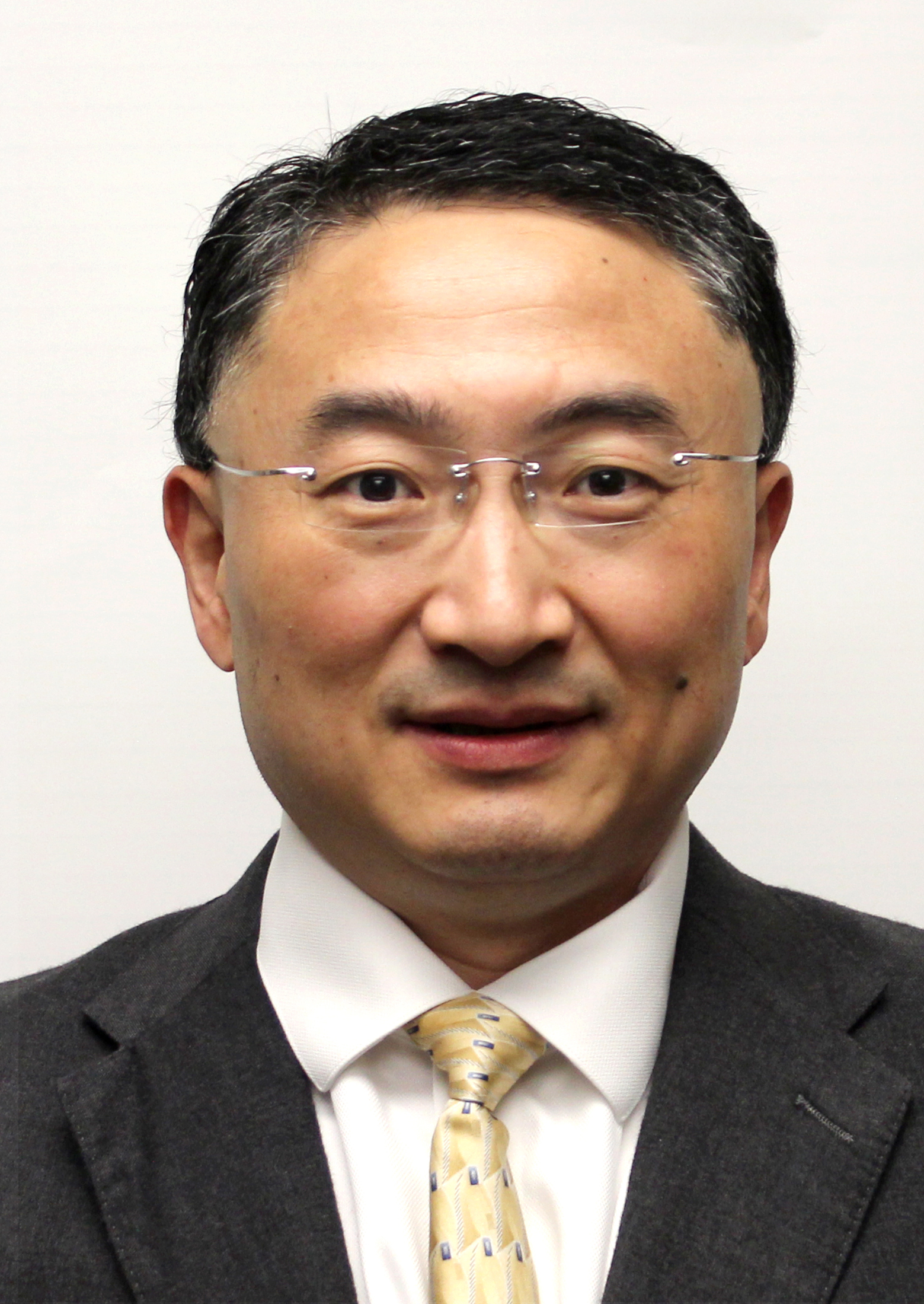 Xiao-Dong Zhou is currently the Stuller Endowed Chair in Chemical Engineering and Director for the Institute for Materials Research and Innovation at the University of Louisiana at Lafayette. Zhou’s research interests are the synthesis, characterization, and theoretical understanding of materials for fuel cells, batteries, electrolyzers, and gas separation membranes. He is recognized for the fundamental understanding of materials and interfaces for the activation of small molecules, such as O2, CO2, and CH4.
Xiao-Dong Zhou is currently the Stuller Endowed Chair in Chemical Engineering and Director for the Institute for Materials Research and Innovation at the University of Louisiana at Lafayette. Zhou’s research interests are the synthesis, characterization, and theoretical understanding of materials for fuel cells, batteries, electrolyzers, and gas separation membranes. He is recognized for the fundamental understanding of materials and interfaces for the activation of small molecules, such as O2, CO2, and CH4.
Zhou has his BS and MS in Chemical Engineering from the East China University of Science and Technology, and a PhD in Ceramic Engineering from the Missouri University of Science and Technology. He received an ECS High-Temperature Energy, Materials, & Processes Division J. Bruce Wagner Young Investigator Award and Department of Defense DARPA Young Investigator Award.
He serves the Society as a Technical Editor of the Journal of The Electrochemical Society in fuel cells, electrolyzers, and energy conversion. The former chair of the ECS High-Temperature Energy, Materials, & Processes Division, Zhou has served on the board of directors and on several ECS committees. He is the author of more than 150 peer-reviewed publications.
2022 ECS Class of Fellows
Nominations for the 2022 class of ECS Fellows are due by February 1, 2022. Additional information about the program, including a list of fellows named in earlier years, is available at https://www.electrochem.org/fellow.
The Electrochemical Society (ECS)
ECS, a prestigious nonprofit professional society, has led the world in electrochemistry, solid state science and technology, and allied subjects since 1902. The Society advances scientific theory and practice by publishing research, hosting meetings, fostering education, and collaborating with other organizations. Our 8,000+ member community in 85+ countries develops innovative solutions to major global challenges. The ECS Digital Library, hosted on IOPscience, encompasses 160,000+ journal and magazine articles and meeting abstracts, and the Journal of The Electrochemical Society, the oldest peer-reviewed journal in its field. Scientists, engineers, and industry leaders share relevant scientific developments, network, and expand research horizons at ECS biannual, co-hosted, and sponsored meetings. Learn more about the history of ECS at www.electrochem.org/history-ecs.
Media Contact
The Electrochemical Society
Mr. Shannon Reed
Director of Community Relations
609.737.1902, Ext. 107
Shannon.Reed@electrochem.org






